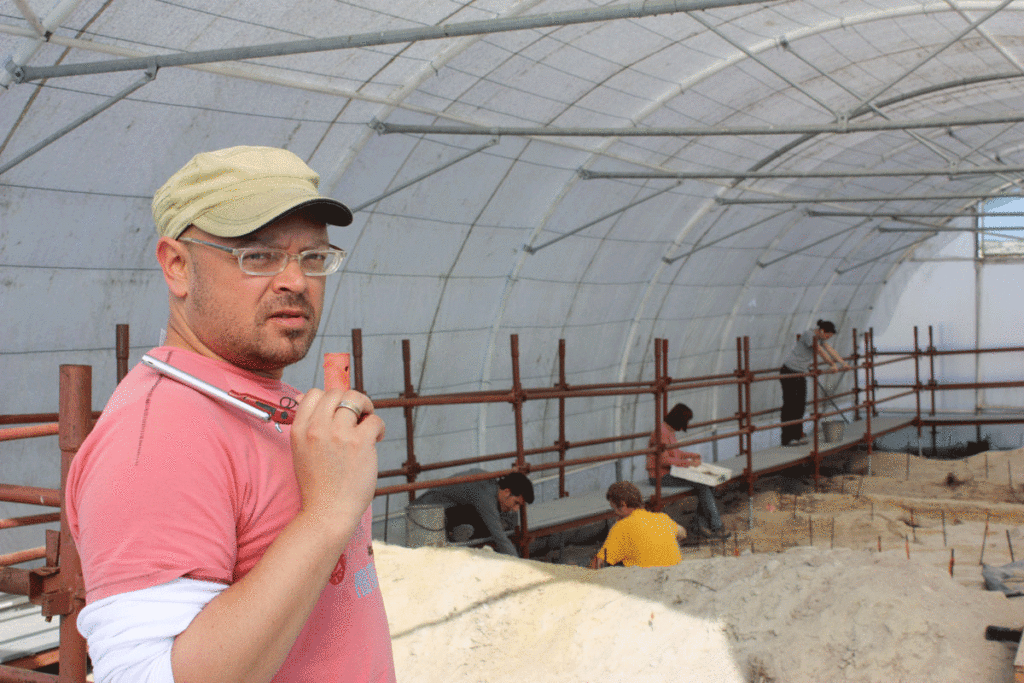Deano Stynder
Professor
Department of Archaeology, University of Cape Town

Biography
My research centres on understanding the ecological and climatic circumstances under which our hominin ancestors evolved. A crucial aspect of this endeavour lies in reconstructing the diets and ecological niches of fossil mammal species. Ungulates, with their specialised dietary preferences, serve as valuable proxies for past vegetation cover and climatic conditions. Consequently, they represent a primary focus of investigation for both myself and my graduate students. Furthermore, I am engaged in elucidating the ecological niches of fossil carnivores that existed alongside and possibly competed with our ancestors. To achieve my research objectives, I analyse functional morphology to infer locomotor and dietary behaviours, and ultimately, the preferred habitats of fossil taxa. Additionally, I utilise analytical techniques such as dental mesowear and microwear analysis to gain insights into various aspects of dietary behaviour.
Disciplines
Palaeoecology, mammalian palaeodiets, mammalian evolution, mammalian functional morphology
Fields of study
The Cape Floristic Kingdom (CFK) is distinguished by its rich variety of plant life dominated by the fynbos family, with grasses assuming a secondary role. Regional discrepancies in rainfall patterns significantly influence the prevalence and distribution of C3 and C4 grass species within the region. The limited occurrence of grass, particularly in the CFK's south-western extension (its winter rainfall zone), accounts for the scarcity of large grazing ungulates in this area. This stands in stark contrast to the abundant diversity of such grazers that thrived in this region during the Pleistocene era, prompting a re-evaluation of past environmental conditions and the prevalence of grass-dominated habitats. Present-day isotopic examinations of fossil grazer teeth provide glimpses into the dietary preferences of these ancient herbivores, suggesting a potential dependence in both C3 grasses and alternative food sources like fynbos and broad-leaved vegetation. Nevertheless, the comprehensive extent of C3 grass consumption remains a subject of ongoing debate. Importantly, the inadequacies in the existing paleontological data sets underscore the urgent necessity for contemporary benchmarks, essential for cultivating more comprehensive interpretations of the CFK's ancient ecological systems. This genus grant will help us to generate a record of modern baseline data to aid the interpretation of a growing archive of palaeontological data sets for the winter rainfall zone of the CFK.
